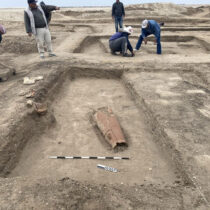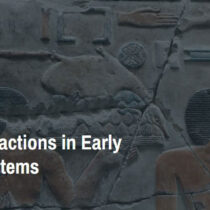The article examines the interest shown by anthropologists in “witchcraft” and the way in which anthropological theorization on that subject served as the basis for anthropological theory in general. For over one and a half century, Anthropology (and Folklore) have lived up to an assignment offered to them as a basis for their academic career; their scientific object was/is otherness, a mixture of primitiveness and traditionalism, of backwardness and conservatism as well as of exoticism and romanticism; the “irrational” reigns. In a way, “witchcraft” became an anthropological and folkloric object, thus creating the conditions for the reproduction of its epistemological continuation. The anthropology of anthropological “witchcraft” is, then, a very interesting subject in itself, as “witchcraft” has been understood, defined and explained in a variety of ways.
There is a dual tendency, though, either towards an evolutionary explanation of the existence and persistence of “witchcraft” as a proof of the irrational aspects of historically determined events; or towards a consideration of “witchcraft” as an indispensable aspect of any kind of society, being a hard-core social phenomenon in itself. Either way, “witchcraft” assumes many forms in anthropological theory as well as in social practice; healing, the evil eye, spirit possession, supernatural beings, poison, sorcery, divination are but some of the forms “witchcraft” undertakes; because there also exist theories about the body, about thought, about symbolism, about classification, not to mention theories about social and political organization. In short, “witchcraft” is a protean subject that has produced protean epistemological situations and protean analytical concepts and notions to account for protean social situations.

